ENG
- Branchen
- Finanzen
Nearshore-Softwareentwicklung für den Finanzsektor – sicher, skalierbar und Compliance-gerechte Lösungen für Banking, Zahlungsverkehr und APIs.
- Einzelhandel
Softwareentwicklung für den Einzelhandel – E-Commerce, Kassensysteme, Logistik und KI-gestützte Personalisierung durch unsere Nearshore-Engineering-Teams.
- Verarbeitende Industrie
Nearshore-Softwareentwicklung für die Industrie – ERP-Systeme, IoT-Plattformen und Automatisierungstools zur Optimierung industrieller Abläufe.
- Finanzen
- Was wir tun
- Services
- Technologien
- Kooperationsmodelle
Kooperationsmodelle passend zu Ihren Bedürfnissen: Komplette Nearshoring Teams, deutschsprachige Experten vor Ort mit Nearshoring-Teams oder gemischte Teams mit unseren Partnern.
- Arbeitsweise
Durch enge Zusammenarbeit mit Ihrem Unternehmen schaffen wir maßgeschneiderte Lösungen, die auf Ihre Anforderungen abgestimmt sind und zu nachhaltigen Ergebnissen führen.
- Über uns
- Wer wir sind
Wir sind ein Full-Service Nearshoring-Anbieter für digitale Softwareprodukte, ein perfekter Partner mit deutschsprachigen Experten vor Ort, Ihre Business-Anforderungen stets im Blick
- Unser Team
Das ProductDock Team ist mit modernen Technologien und Tools vertraut und setzt seit 15 Jahren zusammen mit namhaften Firmen erfolgreiche Projekte um.
- Wozu Nearshoring
Wir kombinieren Nearshore- und Fachwissen vor Ort, um Sie während Ihrer gesamten digitalen Produktreise optimal zu unterstützen. Lassen Sie uns Ihr Business gemeinsam auf das nächste digitale Level anheben.
- Wer wir sind
- Unser Leistungen
- Karriere
- Arbeiten bei ProductDock
Unser Fokus liegt auf der Förderung von Teamarbeit, Kreativität und Empowerment innerhalb unseres Teams von über 120 talentierten Tech-Experten.
- Offene Stellen
Begeistert es dich, an spannenden Projekten mitzuwirken und zu sehen, wie dein Einsatz zu erfolgreichen Ergebnissen führt? Dann bist du bei uns richtig.
- Info Guide für Kandidaten
Wie suchen wir unsere Crew-Mitglieder aus? Wir sehen dich als Teil unserer Crew und erklären gerne unseren Auswahlprozess.
- Arbeiten bei ProductDock
- Newsroom
- News
Folgen Sie unseren neuesten Updates und Veröffentlichungen, damit Sie stets über die aktuellsten Entwicklungen von ProductDock informiert sind.
- Events
Vertiefen Sie Ihr Wissen, indem Sie sich mit Gleichgesinnten vernetzen und an unseren nächsten Veranstaltungen Erfahrungen mit Experten austauschen.
- News
- Blog
- Kontakt
15. Apr. 2025 •13 minutes read
From intern to team lead: Ten-year journey through diverse tech roles
by ProductDock
We are honored to celebrate and interview people who have been with us for ten or more years. It was a pleasure talking to them about their journey through various tech roles over the past decade.
Vuk Banjanin is one of our team members who has spent ten years at ProductDock and has had an insightful journey through diverse tech roles. His curiosity and persistence from the start of his career led him to a team lead position. He is a unique, loyal, friendly, and supportive part of our team, and we appreciate having him with us for more than a decade.
What do you like most about your role?
On the project I’m working on, we collaborate with many other teams, which involves a lot of communication, and the type of tasks can vary drastically. The services are interesting; we work with many people, so whenever a change needs to be made, we have to consider many factors because something we modify in our application may seem trivial. Still, we have to think about who our users are and whether what appears to us as a small change might actually disrupt their systems. You need to know your system well but also the surrounding systems in order to know how we can change, repair, upgrade, or adjust something. For example, when we worked for a client, there was a lot of collaboration with colleagues from Canada and Australia, which required learning some of their specific requirements and balancing different needs when one side wanted one thing and the other something else. I am interested in the juggling and complexity of the team lead role; therefore, the challenges and intricacies of the position itself intrigue me.
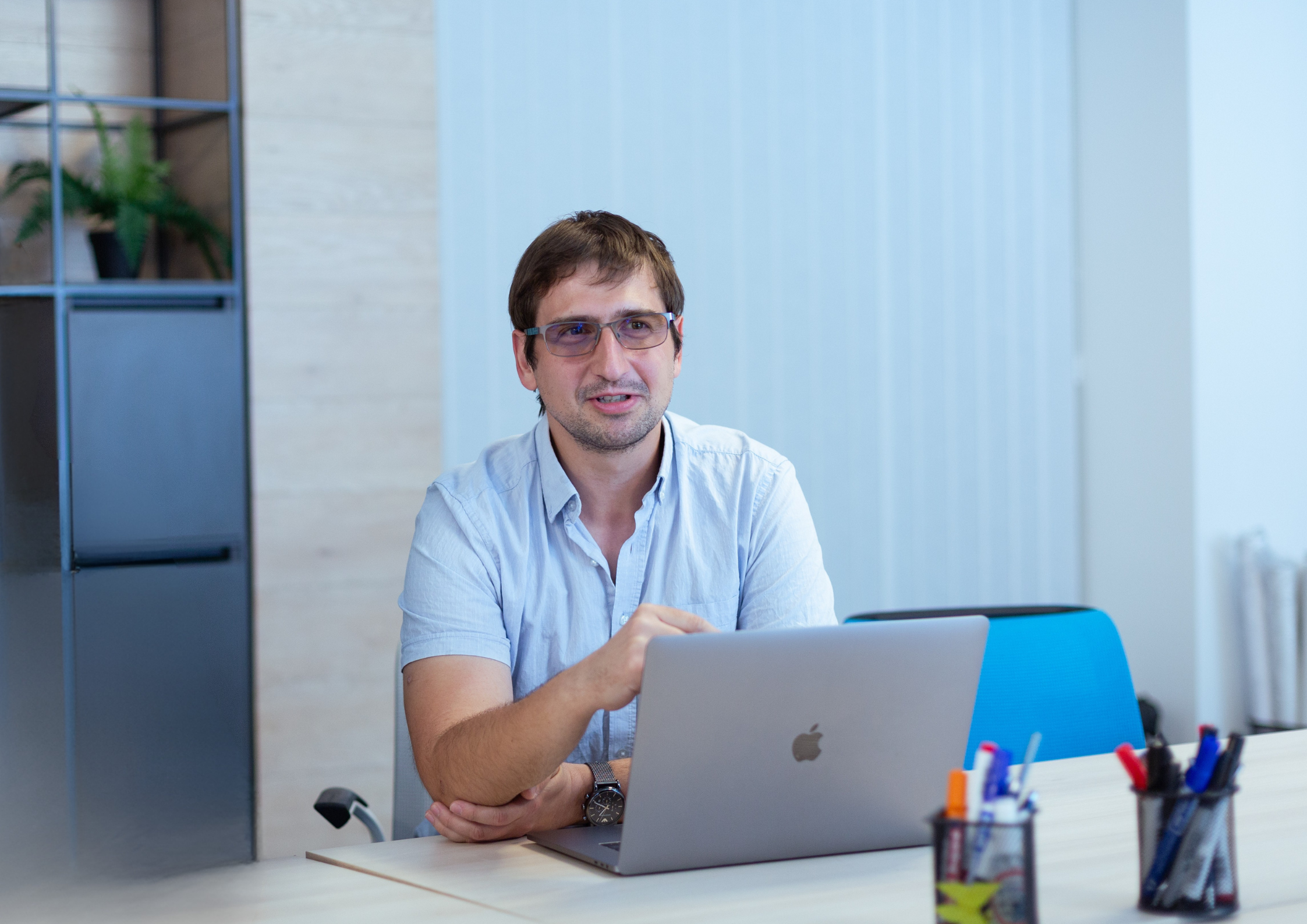
What is your biggest challenge as a Team Lead at ProductDock?
Complexity. For example, when someone asks if something can be changed, it’s rarely possible to give an immediate answer. Because, in theory, it sounds like “yes, we can do it”, but we have to check who’s using it, how it’s being used, and what the implications are – and that’s the part I really enjoy. In the end, it turns out to be paradoxical, but writing code is the smallest part of solving a problem. We spend a lot of time thinking about how to implement a solution. It often happens that we write just a single line of code in a day and spend the remaining eight hours thinking about how to solve the problem.
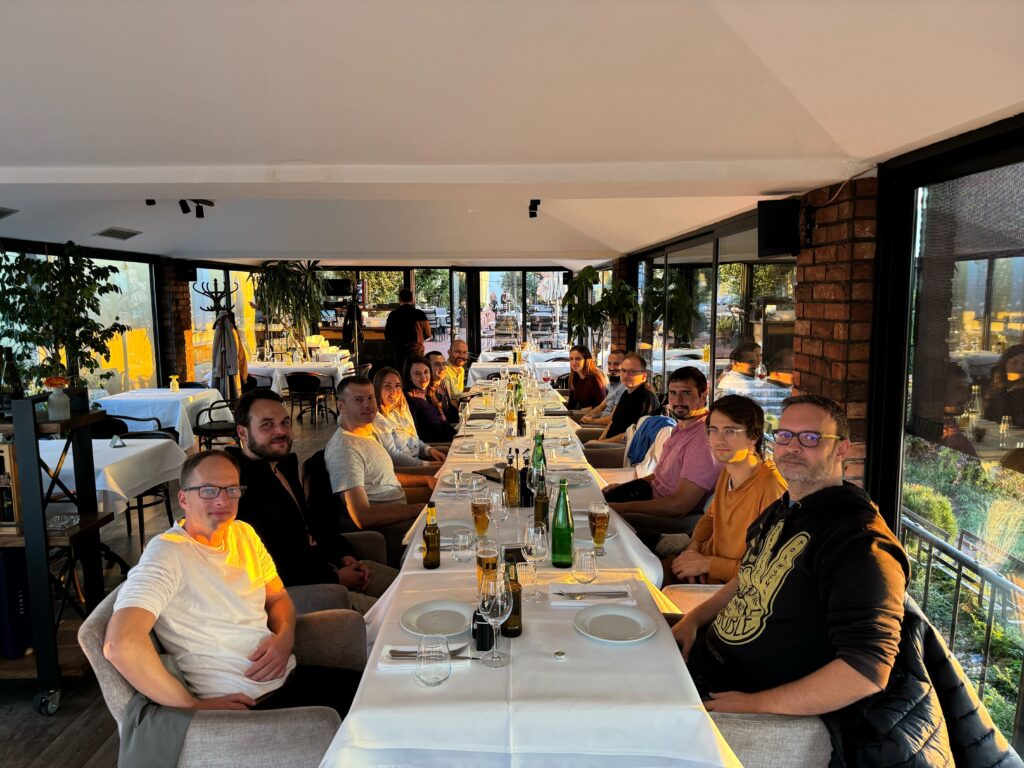
How did you grow at ProductDock? Tell us about your journey.
As the current team lead of the predominantly Backend Java team, I started my career as a person who came to an internship doing Android development. I found out about the company by chance, and since I needed to do an internship for my university, I asked if I could do an internship here. When they asked me what I was interested in, I, as a complete beginner at the time, said Android Java development. I joined, completed my internship, and later got hired. When I got a job, it was quite diverse. Back then, we had something that was the predecessor to today’s Rookie Boot Camp. Three of us started together at the same time, with similar skill levels, and in the beginning, we developed an internal application – more precisely, a game that we were learning to work on. After that internal project came my first real project: an information system for farm management. So, fresh out of college I found myself working on something that seemed like science fiction to me, a project where a system designed to run a farm. Everything was automated, and I worked in a team of people where everything seemed abstract at first – I didn’t fully understand what was happening or how it worked. We learned about the life cycles of cows and the key aspects farmers needed to monitor, which was fascinating since I had never encountered anything like it before. That was my first project.
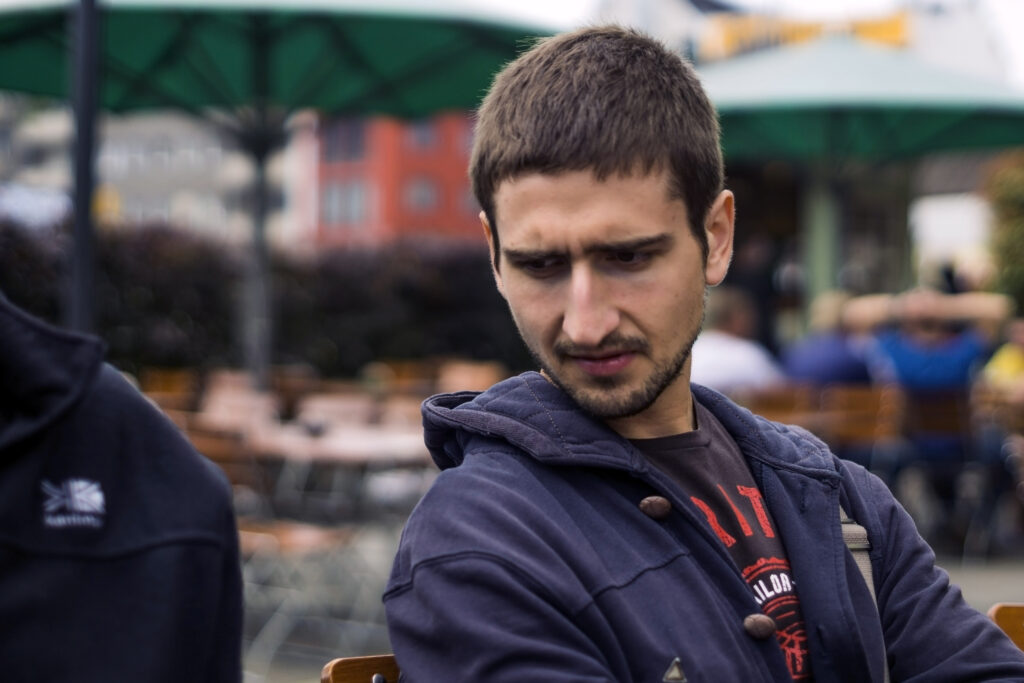
The second project was a drastic change – I worked as a manual QA on a project for a major client, where the unique aspect was that our team consisted of 40 people in total, not just testers. It was interesting during our one-hour daily meetings to figure out whom to listen to and whom not to, and this experience significantly improved my soft skills, enabling me to work effectively on this project. The next project was a DevOps project in the pharmaceutical industry, which was also interesting because everything had to be documented and structured. It was fascinating to observe the types of decisions that needed to be made in such a highly regulated environment.
After that, I moved on to the project I’m currently working on, where I’ve spent nearly six years – it’s a combination of everything I’ve done before. I started as an Android developer, then became a full-stack developer, then a QA, then DevOps, and now all these experiences gained on various projects help me to perform my daily duties. Whether it was from my time as a QA tester, where I had to learn how to work in a large team, or from DevOps, where everything had to be organized and I had to understand how things function “under the hood”, or from development itself, which I have experience with on other projects. I’ve covered a lot of spheres throughout my career. On this current project, another person was originally the lead. And over time, I started assisting them, gradually taking on more responsibilities. When that person eventually left the team, the team voted for me to take over the role, and that’s how I became the team lead.

What is your best ProductDock memory?
I don’t know what to say. I don’t know which memory I would single out, but I will mention two that left the biggest impression on me. The first one is codecentric’s CC Unconference, where it was nice to see so many people from the same company and that such a lovely event can be organized. People’s mindsets were compatible, and we shared the same values. What made this conference truly special was that it was incredibly useful, yet the actual content wasn’t planned in advance. Every morning, people would gather, propose topics, and decide whether they wanted to speak on a certain subject or simply listen. Seeing that made me immediately realize that this was the right company for me. By that time, I had already been with the company for a while, but this experience reaffirmed my decision.
The second memory happened three years ago when I had the opportunity to visit a client in both Australia and Canada within the same year. If someone had told me that I’d travel to two such exotic destinations for work, I wouldn’t have believed them. I’d also highlight the moment we were in Australia and when the company’s director personally came to thank me and another colleague for taking responsibility and solving a major issue that saved the company from a big problem. At home, I still have the jersey the Australian company’s director gifted us as a sign of gratitude.
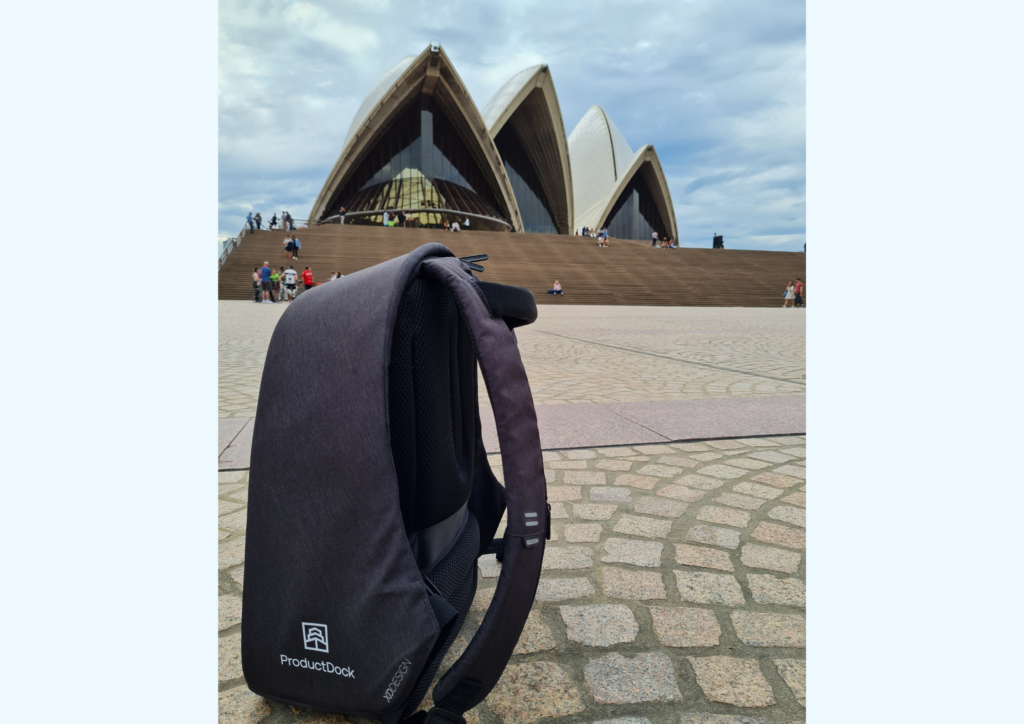
What is the secret of staying in the same company for more than 10 years?
The people, definitely. The people that have been here from the beginning and many of them still are. People come and go, but a significant number of people stay. Those people inspired me, and when I saw how they work, I wanted to be like them one day, and wanted someone to look at me the same way I looked at them. These are people who are always open to conversation, always willing to help, patient, and capable of understanding how the person they were speaking with thinks – finding the best way to explain something and communicate their message effectively. That was my guide for many years. Now that I’m a team lead, I should be at the same level. Regardless of all the changes and rotations, there was always someone to learn from and someone it was a pleasure to work and collaborate with.
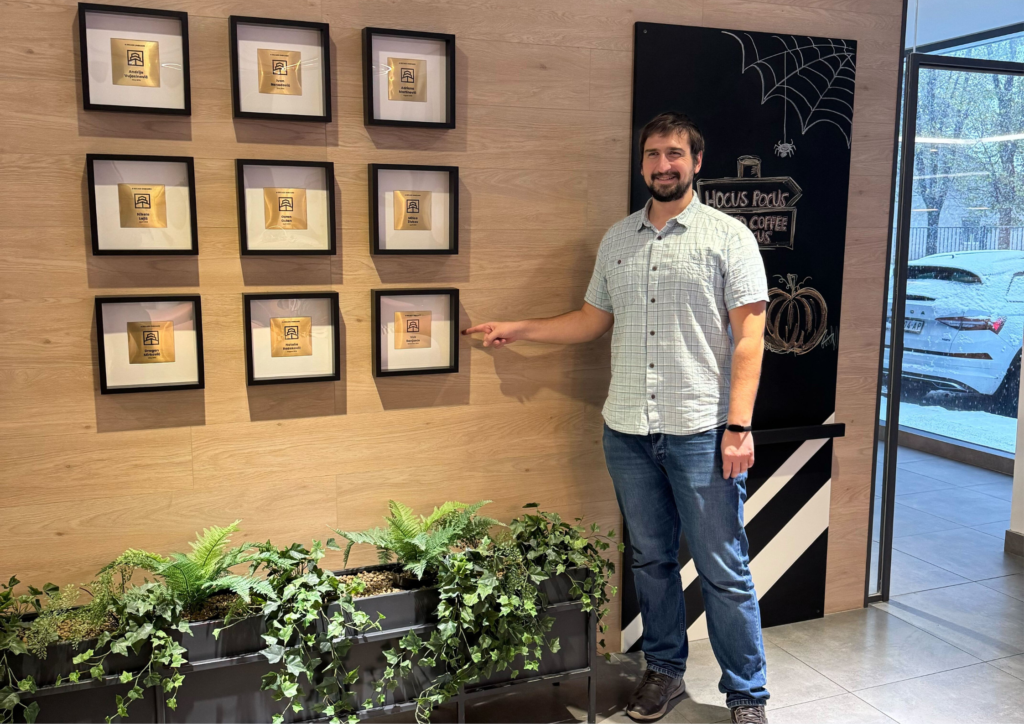
How do you like the projects you have worked on at ProductDock?
Every project had its challenges, but I looked for positive things and tried to learn something. I can’t say that any project was bad because I got something out of each one that helped me in all subsequent projects.
What does a good atmosphere in the work environment mean to you?
Transparent communication and people’s willingness to admit when they’re unsure about how to do something. I think that opens the door to many things, or simply saying when something doesn’t sit well with them – whether it’s bad jokes or certain opinions – just to communicate openly so that everyone is aware of any issues. As long as there is openness and honest communication, all situations and issues can be resolved much more easily. If we don’t know how someone thinks or feels, it becomes much harder to come up with a solution to the problem and approach that person in the right way.
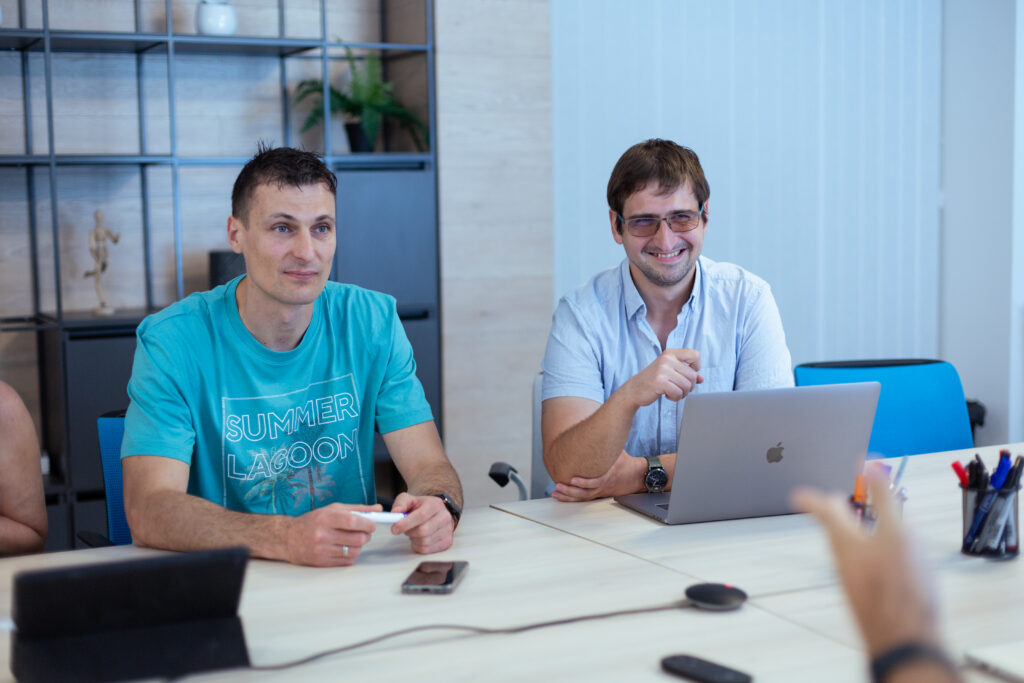
Which qualities and skills are important for a new team member to possess?
The ability to communicate openly. It’s easy to say, but it has to be earned – you have to make sure people feel safe enough to communicate freely. So far, the team has always been composed in a way that whenever someone new joined, as soon as we established open communication, everything became much easier. The second important thing is curiosity – what I like to call the rebellious motto: “Challenge everything.” In my opinion, this is crucial. Whenever I say something is good or bad, I believe it should always be questioned – why? We often don’t rethink inefficient processes simply because they’ve become routine. But when someone new comes in with a fresh perspective and asks “Are you sure this is really the best way to do it?” – instead of just accepting things as they are – they use their own reasoning. That kind of mindset is great for the team and teamwork in general.
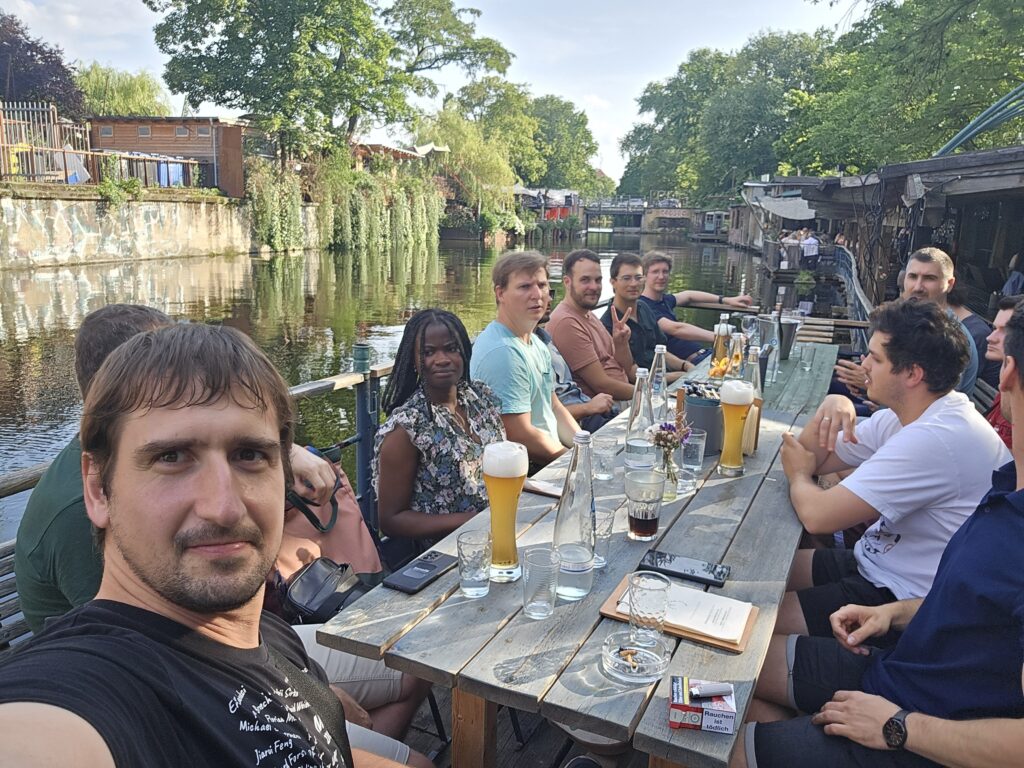
What are the three things you like the most at ProductDock?
People, projects and benefits.
Where would you go if you could visit anywhere you have never been and why?
Right now, my dream is to visit the south of Portugal. From what I’ve seen, the nature there is absolutely beautiful, with many lovely hiking trails. I also discovered that there are excursions to Antarctica. I want to see nature and what it all looks like while it is still untouched. It’s almost unimaginable to me – such a large, ice-covered landscape with nothing but the occasional wild animal. It’s on my bucket list, but I don’t know if I’ll get a chance to visit.
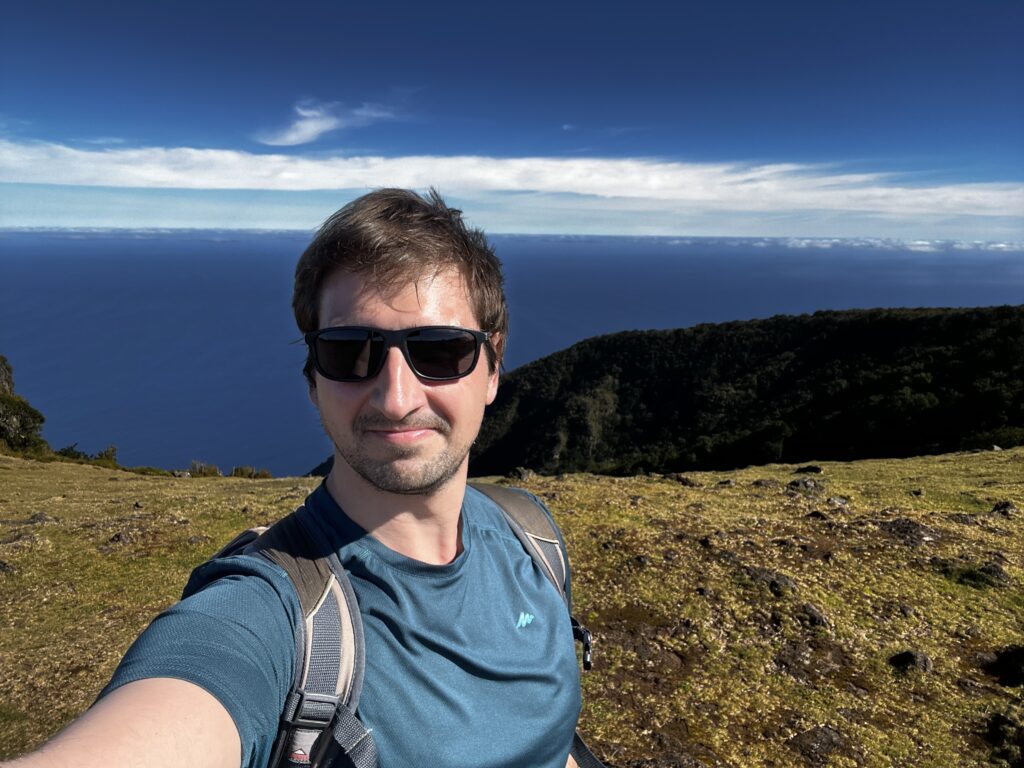
What do you do to relax in your free time? How do you recharge your batteries?
I enjoy traveling, hiking, and running. Most of the company knows I love animals; I have two cats. On my way from home to the office, I always run into familiar cats, and we even have office visitors, the famous Zvonko and Čonko. When I travel, I always choose destinations that are more nature-oriented than city-focused. One place that has really caught my attention is Sao Miguel, a Portuguese island in the middle of the Atlantic. I have been there twice, and I would go there again. It is a real zen place for me. The first time I visited, I felt completely relaxed in a way I had never experienced before, and that feeling keeps drawing me back. There are dozens of hiking trails and a volcanic island there; it’s mountainous but nothing too challenging – you can enjoy it regardless of your fitness level. Nature is beautiful. Because of its volcanic and fertile soil, everything thrives there. Because of that, they use that island, that archipelago, to cultivate all endangered plants from the whole world.
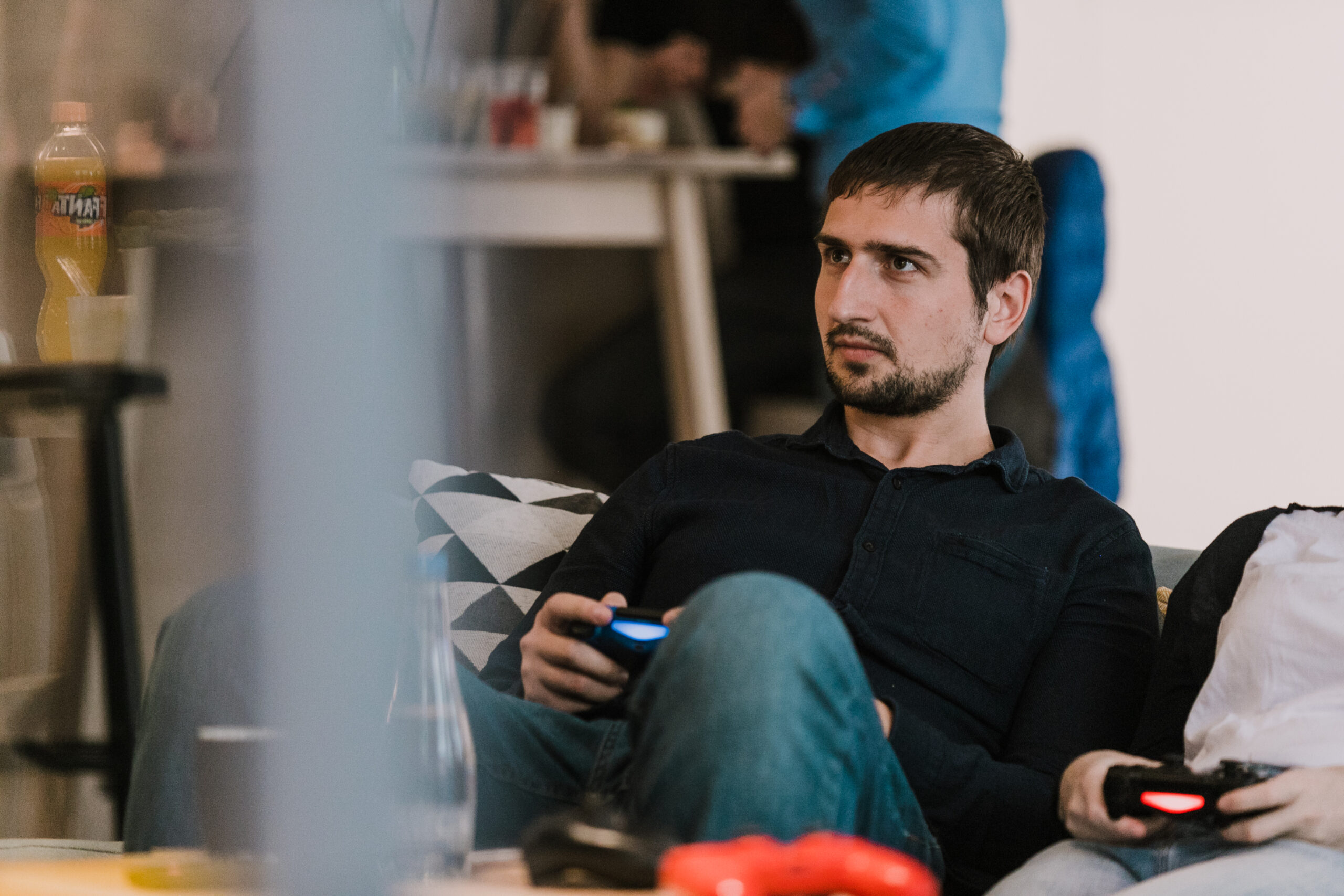
What is your favorite video game?
The gaming buzzword for me is “League of Legends.” It’s probably become an obsession since I’ve been playing it since high school. People often say gaming is a waste of time, but I actually gained something valuable from it. A friend and I once connected with a player from Scotland, and at first, understanding his accent was really difficult. But later, when I worked as a QA tester, our manager was from Ireland, and many people on the team struggled to understand her. For me, it wasn’t an issue at all – I was already used to the accent from my gaming experience. I even became the unofficial translator during daily meetings, repeating what she said in a way everyone could understand. So, you never know who you’ll meet or what you’ll learn from gaming – it can be useful in unexpected ways. Aside from LOL, I’m into any kind of simulator – whether it’s driving cars, trucks, planes, submarines – if it can be driven, I’m interested.
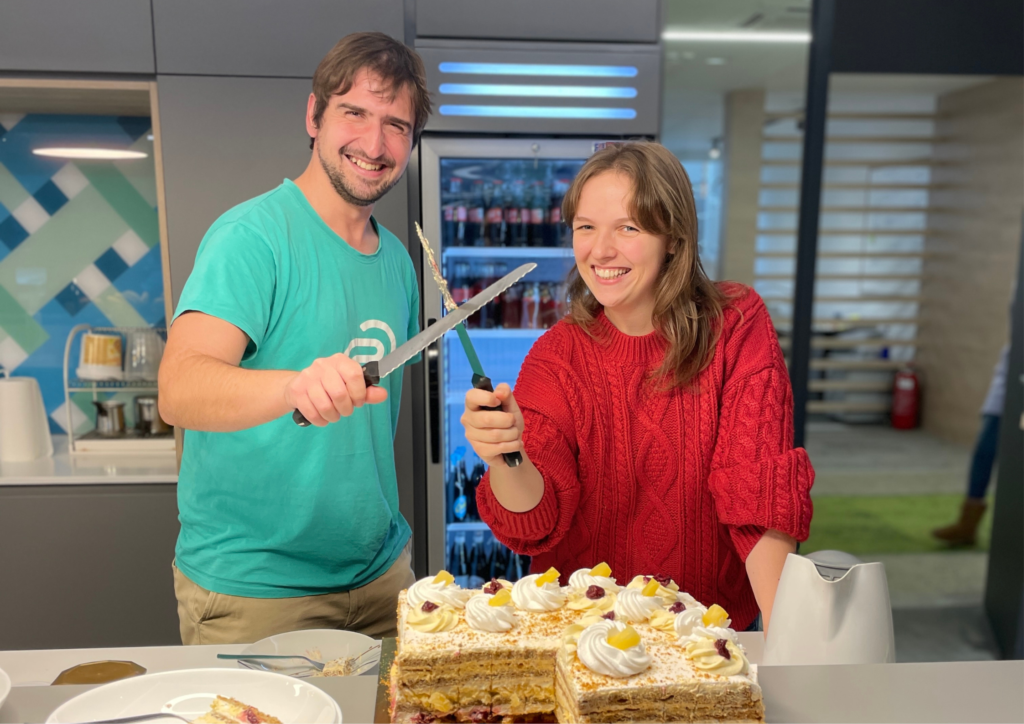
If you were not a software engineer, what would you be and why?
Either a pilot or a truck driver. During an icebreaker session on one project, we were asked to share something about ourselves that others didn’t know. I was thinking about what to say, and then I decided to give it a shot; I said that playing flight simulations was interesting for me and that one day I would like to be a pilot. I don’t believe I would have succeeded, but that didn’t stop me from playing. After me, the head of that department introduced himself and picked up the book that was standing in front of him, which turned out to be a pilot certification manual, and he told me: Never give up on your dream.
I don’t know how those things relate to what I do, but it’s my passion. Even in elementary school, I took the high school orientation test, and the results showed that it was either software development, which I do, or being a store clerk or a truck driver. I don’t know how they came up with those three things; my parents thought that they had missed something or that I had missed something with my answers, but it turned out that, in fact, I am also a salesman because, as a team lead I have to sell a little and driving attracts me, no matter which vehicle, as long as it has some controls and can be managed.
Which app do you find helpfull and why? (in everyday life)
What helps me organize my daily obligations is Notion, which includes both private and business obligations. It’s my go-to tool for writing all my notes.
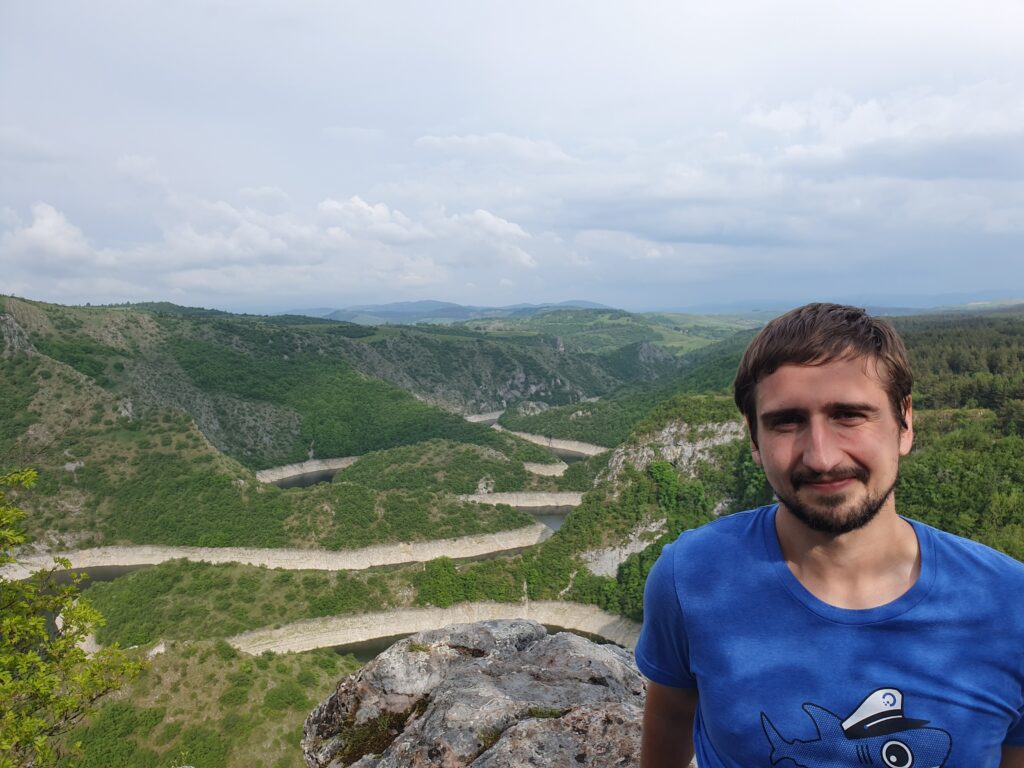
Have you seen any good movies lately you would recommend?
Anything that has ‘Star Wars’ in the name. :) Generally, science fiction. A film that touched me recently was Green Book. It was a real feel-good movie that lifted my spirits while watching it. One of my favorites is The Blues Brothers series. The music from that film is phenomenal. When I travel somewhere, I play that music and I’m able to drive to the end of the world. When I was traveling with my parents, we either played that music or the soundtracks from Quentin Tarantino’s movies. If I had to mention something that is programming-oriented, it would be the movie Tron from the ’80s. The part where the user enters the world of computers and competes with programs – when I saw that as a kid, I immediately wanted to be a programmer. I wanted to make video games and enter that world, talking to programs. My parents couldn’t get me away from the TV – I said, “This is me, this is what I want to do.”
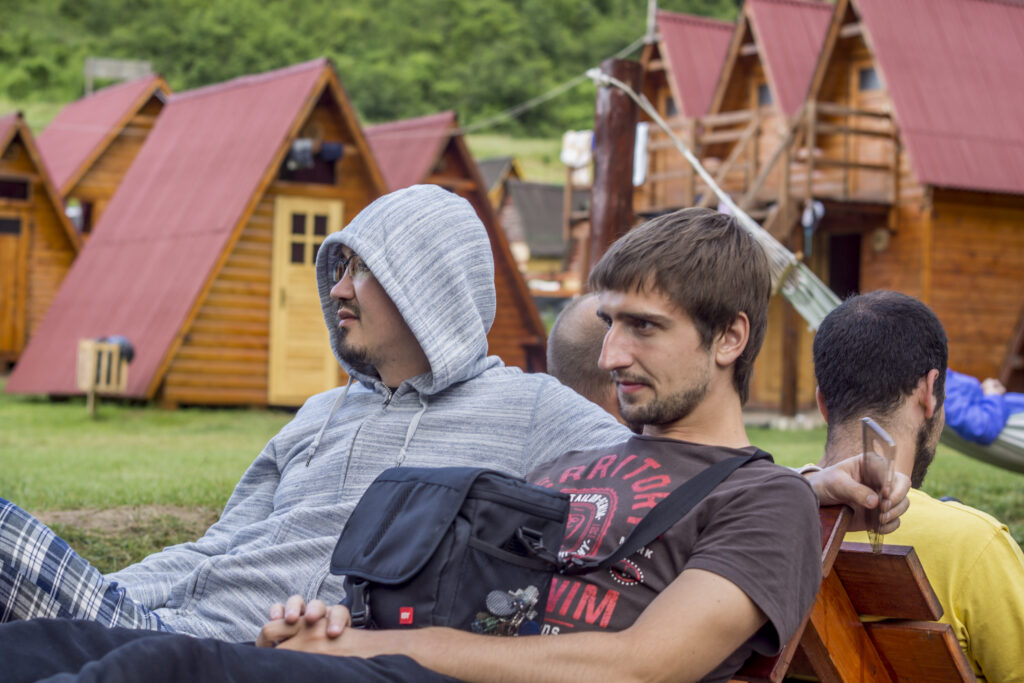
What was the best concert you ever attended?
That’s a tough question; I went to about fifteen concerts just last year. I generally like to listen to all genres, and I love attending concerts. Last year, for example, all the concerts I went to were metal concerts, but I also went to see Gipsy Kings, which amazed me, and before that, I went to listen to Ludovico Einaudi and Bocelli. My musical taste is diverse. And here at the office, you can hear a little bit of Rammstein, then Dragana Mirković, and throw in any random band name you want; it’s probably being played. The concert I would single out is Ludovico Einaudi’s. We went to Milan to listen to him, which made it even more special. I never used to care about where I sat or stood at converts, but this time, we got lucky and were seated close to the stage, where we could hear the piano directly. The speakers were behind us, so we listened to the raw sound, not something amplified. At one point, I think the entire venue was crying; it was so moving and a fantastic experience.
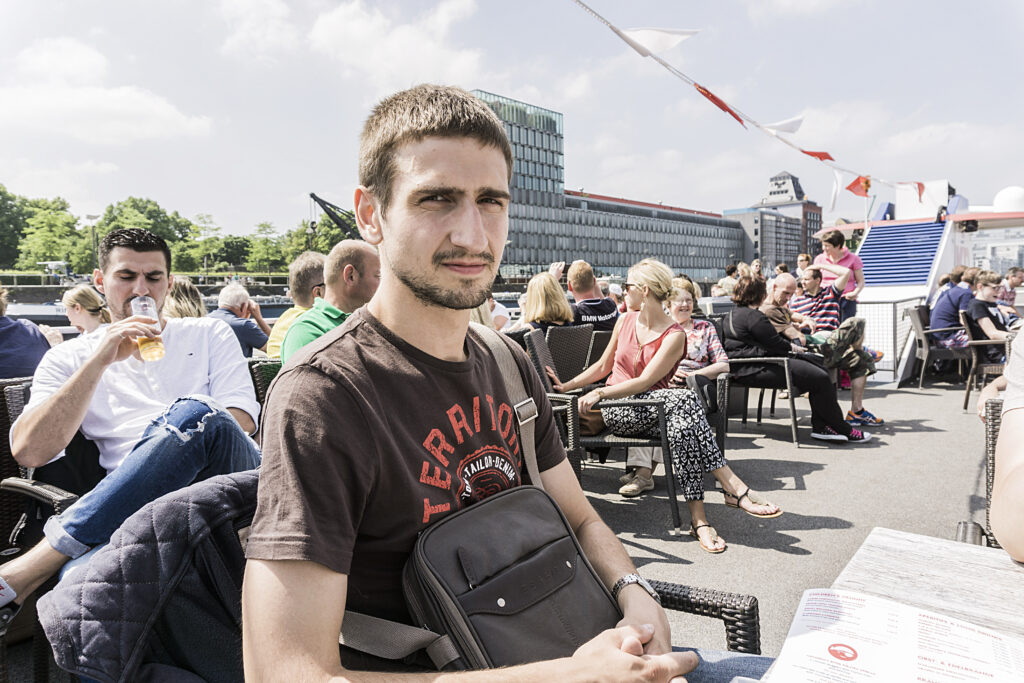
What is something you would appreciate if someone told you when you were starting to code?
You need to be curious and persistent. Everyone’s career path unfolds differently, but one piece of advice I’d highlight is to never lose curiosity – to always keep an eye on what’s happening beyond your immediate field. I think it’s great to be highly specialized and become an expert in something, but it’s much more interesting to stay aware of the bigger picture, to constantly reassess whether you’re on the right track or if something needs to change. I came to my internship thinking I would be an Android developer, and I ultimately left that world behind, even though before the internship, I was convinced that was the right path for me. So, you need to have an open mind and be open to everything.
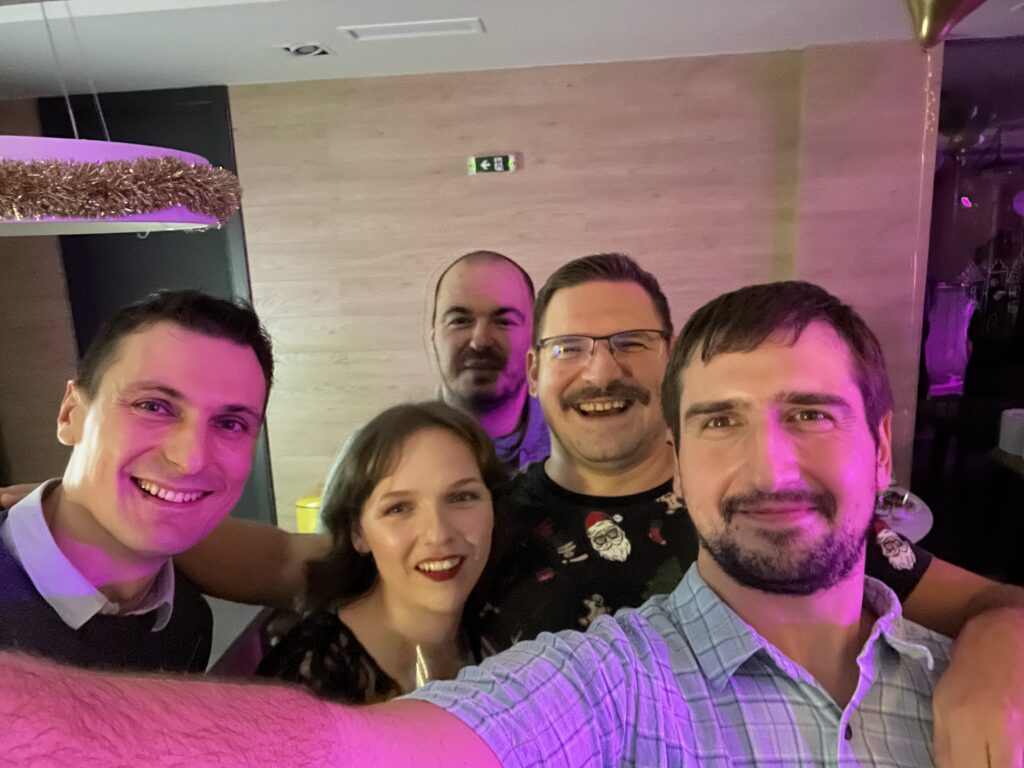
Where do you see ProductDock in the future and would you like to send a message to all PD crew members?
I believe that company culture is what brought the company to where it is today, and it won’t survive if that culture doesn’t endure. The sharing of experiences, mutual support, the idea that we are here for each other, and the general exchange of knowledge – these are the foundations that keep us strong. I think the company has good potential as long as we follow these currents, our sailing will be smooth. The conferences codecentric has organized and the meetups we used to have played a big role in this, and it would be great to see those return. Right now, meetups aren’t as common here in Novi Sad, whereas in Doboj and Banja Luka, that culture is thriving. I believe they should take the lead in shaping what our company should look like. They are doing it very well for themselves, but now they want to inspire us to follow suit and foster that same culture of knowledge-sharing.